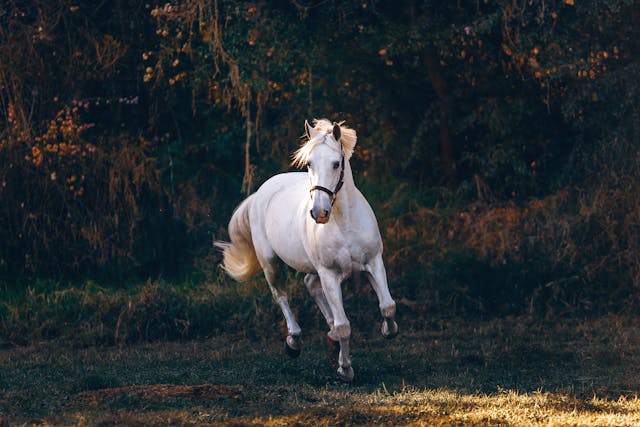
October 23, 2024
Beltaine
So finally May is here - and summer has begun! Our ancestors celebrated this month as the feast of Bealtaine. This feast traditionally begins on May 1st - May day. Various activities are associated with this day - from washing your face in the dew to maintain a youthful complexion, to various animal-related practices. It is the animals of course that we are interested in. May was the time to drive the cattle to summer pasture - perhaps on higher ground. The more clement weather meant that they could survive outside. One local tradition was to herd the cattle between two bonfires. This was designed to drive off disease which could spread as various herds mixed. It was even customary to take a lit branch from the bonfire to light the fire in your home. This would confer protection to your household too.
Horse owners look forward to the summer weather. After enduring the dark winter months mucking out and conditioning their horses, they are finally read for the summer competitions. Now, in the 21st century, we too have to protect our animals from disease. These days we tend not to light bonfires but vaccinate our animals. This is important, as disease tends to spread where animals come and meet - like at horse shows, pony club camp or competitions. It is important that you consult with your vet to ensure that your horse is fully vaccinated prior to going to these events. Many events have strict rules about which vaccines they require, and also insist upon evidence of vaccination in the form of a passport or vaccination card.
The two main diseases we vaccinate horses against are influenza and tetanus. There have been widespread media reports of fatal cases of influenza in horses in England in the spring. To vaccinate for these diseases usually requires a starter course of repeat injections followed by regular boosters. The time interval depends on the product used, but your vet can advise you. It is normal to rest your horse for a day following vaccination to allow time to recover. The vet will then record the date and place of vaccination in your horse's passport. NB it is a legal requirement that your horse has a passport for recording vaccinations and medical treatment in.
Prevention is better than cure. The vaccines that we use are very good at protecting your horse from disease so you can go out and enjoy yourself. No vaccination is 100% effective, but vaccination is still essential where groups of horses mix. The key is to get yourself organised early and contact your vet to book a vaccination well in advance of travelling to any show or camp. If you need more information please give us a ring on 02844614225.

